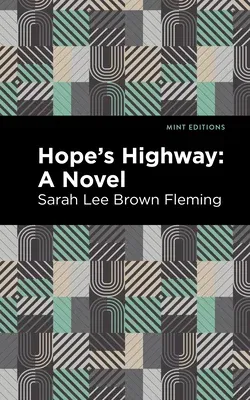Hope's Highway: A Novel (1918) is a historical novel by Sarah Lee
Brown Fleming. Published during the Harlem Renaissance, Fleming's novel
is a powerful work of fiction exploring the lives of formerly enslaved
Black people living in the South during Reconstruction. Recognized as a
leading advocate for the advancement of Black girls and women throughout
her life, Fleming is a writer whose voice never falters from the task at
hand: telling the story of her people. In the aftermath of the Civil
War, the promise of the Emancipation Proclamation is fulfilled to with
varying results throughout the South. On John Vance's plantation, many
of his former slaves have remained to work in their new capacity as wage
laborers, fearful of change and confident in the relative kindness of
their former master. Among them, Enoch receives financial support and an
education, eventually rising to the role of first Black teacher in the
Reconstruction South. When John Vance dies, his land and belongings are
divided among his former slaves, including the influential Institute,
now left for Enoch to run. As much as their situation promises some hope
for the future, the specter of enslavement and prejudice lurks around
every corner, forcing them to use caution when dealing with those who
would sooner have them back in chains than treat them as fellow humans.
Hope's Highway: A Novel is a story of tragedy and redemption set in
the South during the period of Reconstruction, a time of immense change
and even greater promise in a nation only just emerged from the shadows
of war. With a beautifully designed cover and professionally typeset
manuscript, this edition of Sara Lee Brown Fleming's Hope's Highway: A
Novel is a classic work of African American literature reimagined for
modern readers.


